Nitrification
Nitrification is a vital process in the nitrogen cycle, where certain bacteria convert ammonia (NH3) into nitrites (NO2-) and then into nitrates (NO3-). This process occurs in two main steps, each carried out by specific groups of bacteria.
Step 1: Ammonia to Nitrite
The first step of nitrification involves the conversion of ammonia (NH3) to nitrite (NO2-) by bacteria known as ammonia-oxidizing bacteria (AOB). These bacteria use ammonia as an energy source and convert it to nitrite through oxidation.
Step 2: Nitrite to Nitrate
In the second step, nitrite (NO2-) is further oxidized to nitrate (NO3-) by bacteria called nitrite-oxidizing bacteria (NOB). This process completes the nitrification cycle, producing nitrate which is an essential nutrient for plants.
Importance of Nitrification
Nitrification plays a crucial role in making nitrogen available to plants in the form of nitrates, which are essential for their growth and development. It also helps in removing toxic ammonia from the environment, thereby maintaining ecological balance.
Study Guide
- Define nitrification and its significance in the nitrogen cycle.
- Explain the two main steps involved in nitrification and the specific bacteria responsible for each step.
- Discuss the importance of nitrates for plant growth and the role of nitrification in providing this essential nutrient.
- Compare nitrification with other nitrogen transformation processes such as nitrogen fixation and denitrification.
- Explore the environmental implications of nitrification and its impact on ecosystems.
◂Science Worksheets and Study Guides Fifth Grade. Cycles of life and Biomes
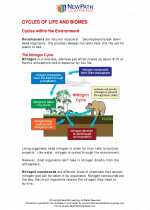
 Worksheet/Answer key
Worksheet/Answer key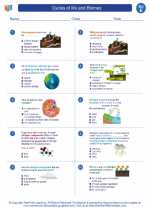
 Worksheet/Answer key
Worksheet/Answer key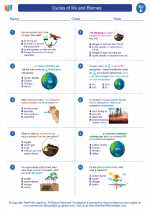
 Worksheet/Answer key
Worksheet/Answer key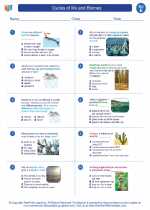
 Worksheet/Answer key
Worksheet/Answer key
 Vocabulary/Answer key
Vocabulary/Answer key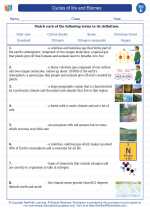
 Vocabulary/Answer key
Vocabulary/Answer key
